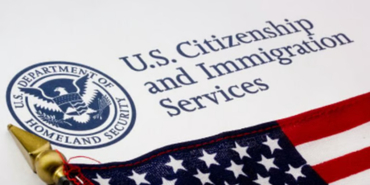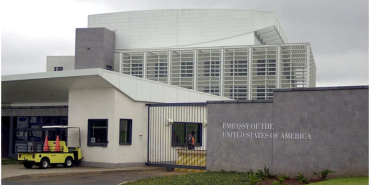Here Are the US Immigration Terms to Know in 2025

As a second Trump administration looms, significant transformations to the US immigration system may be on the horizon, affecting various aspects of immigration law and border security.
President Donald Trump’s prior term brought substantial changes to asylum processes, border enforcement, and deportation policies. Throughout his campaign for a second term, Trump has pledged to dramatically reduce both legal and illegal immigration, asserting his commitment to launching “the largest domestic deportation operation in American history,” an issue that remains a primary concern for many voters.
Alien Enemies Act
Among the key policies that could undergo revision is the Alien Enemies Act of 1798. This legislation permits the president to detain, relocate, or deport noncitizens deemed enemies of the United States during wartime. Trump has suggested he might invoke this act as a means to expedite the deportation of individuals affiliated with criminal gangs and drug cartels, potentially circumventing standard due process.
Birthright Citizenship
Another contentious issue is the status of birthright citizenship as outlined in Section 1 of the Fourteenth Amendment. Trump has previously expressed intentions to issue an executive order aimed at denying automatic US citizenship to the children of unauthorized immigrants. However, legal experts warn that such a move would necessitate a constitutional amendment, raising questions about its feasibility.
Customs and Border Protection (CBP)
Customs and Border Protection (CBP), a key agency within the Department of Homeland Security (DHS), is tasked with enforcing border policies. Trump views border security as a national security imperative and has called for a significant expansion of the border patrol workforce by adding 10,000 agents, alongside a commitment to completing the US-Mexico border wall.
Deferred Action for Childhood Arrivals (DACA)
The Deferred Action for Childhood Arrivals (DACA) program, established under the Obama administration, offers temporary deportation relief to undocumented immigrants brought to the US as minors. After suspending DACA in 2017, Trump faced legal challenges that culminated in a 2020 Supreme Court ruling asserting his administration lacked sufficient grounds to terminate the program. The future of DACA remains precarious under a renewed Trump tenure.
Flores Settlement Agreement (FSA)
Additionally, the Flores Settlement Agreement (FSA) of 1997, which stipulates care standards for minors in detention, may see alterations. Trump's previous term witnessed the separation of over 5,500 families, justified by the administration as a protective measure against trafficking. While attempts to modify the FSA to allow for indefinite family detention were blocked by federal courts in 2019, the current Biden administration has taken steps to revisit family detention protocols at the southern border.
Foreign Worker Visas
In the realm of foreign worker visas, including H1B, H2A, H2B, and H4 types, Trump has committed to reforms aligning with his "Buy American, Hire American" agenda, although these proposals have often stalled in Congress. Most foreign worker visa programs were halted during the COVID-19 pandemic, with Trump concurrently advocating for an elevation of high-skilled immigration, promising pathways to green cards specifically for foreign-born graduates.
Humanitarian Parole
Humanitarian parole, which allows noncitizens to temporarily enter the US for urgent humanitarian reasons, has been regularly employed by the Biden administration. This includes the establishment of a parole program for nationals from Cuba, Haiti, Nicaragua, and Venezuela (collectively referred to as CHNV). Trump's platform indicates a desire to terminate the CHNV program and retract humanitarian parole grants from migrants already residing in the US.
Immigration and Customs Enforcement (ICE)
Additionally, in terms of internal enforcement, Immigration and Customs Enforcement (ICE) is poised to reflect the priorities of a second Trump administration, particularly with promises to execute unprecedented deportation efforts, reminiscent of historical operations such as President Dwight D. Eisenhower’s Operation Wetback.
Insurrection Act
Lastly, Trump's intentions to invoke the Insurrection Act of 1807 highlight a willingness to deploy military forces for civilian law enforcement, particularly for apprehending migrants at the US-Mexico border amid perceived disorder.














Add new comment